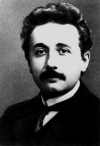Open Source Software for Education
The world of education is filled with commercial software. The technology of this software is secret. This means that only the manufacture can fix or improve it. It also means that the user generally cannot tell what it is doing, whether it is collecting your personal information, etc. Finally this software generally costs money or exposure to advertising to use.
Open source software is an alternative. With open source, anybody can look "under the hood". Anybody can see exactly what the software does. Anybody can fix it, add a feature to it, etc. And, while anybody can charge you for a copy, they cannot prevent somebody else from charging you less for it or from giving it away.
Most educators are not programmers, so why would the ability to read the code and modify it matter to them? The answer is that, even though they may never read or modify it, there is a whole community that does. The presence of this community gives us confidence in open source software, much like the presence of voters in a democracy gives confidence to those who do not.
When schools expose students to commercial software, they also inadvertently and inappropriately advertise that software and software vendor to the students. Most open-source software is written by individuals or nonprofits.
What follows is a list of some open-source software that I have either found to be useful as an educator, or have merely stumbled upon and plan to play with it later. It is by no means an exhaustive list and it is math-centric. Unless noted otherwise, in addition to being "free as in speech", all of this software is also "free as in beer", meaning that you can download it without paying anybody anything. As Sirius Cybernetics Corporation says, "share and enjoy"!
- Mathematics
- GeoGebra, my favorite! I use this every day. "A free and multi-platform dynamic mathematics software for schools that joins geometry, algebra and calculus." Being Java-based, GeoGebra makes it very easy to make interactive content, both algebraic and geometric (like Sketchpad), available to students on the Web.
- GNU TeXmacs, another great program I use every day. It allows me to type mathematics beautifully almost as fast as I can think it. "A free wysiwyw (what you see is what you want) editing platform with special features for scientists. The software aims to provide a unified and user friendly framework for editing structured documents with different types of content (text, graphics, mathematics, interactive content, etc.). The rendering engine uses high-quality typesetting algorithms so as to produce professionally looking documents, which can either be printed out or presented from a laptop."
- Maxima, "a system for the manipulation of symbolic and numerical expressions...Maxima is a descendant of Macsyma..."
- Sage, "for studying a huge range of mathematics, including algebra, calculus, elementary to very advanced number theory, cryptography, numerical computation, commutative algebra, group theory, combinatorics, graph theory, and exact linear algebra...By using SAGE you help to support a viable open source alternative to Magma, Maple, Mathematica, and MATLAB. SAGE includes many high-quality open source math packages."
- Octave, a high-level language for numerical calculations, more or less compatible with Matlab. Think of it as a very sophisticated graphing calculator
- Gnuplot, an excellent plotting package
- KSEG, interactive geometry similar to Geometer's Sketchpad
- TilEm, "a TI Calculator Emulator that uses Gtk". Designed for Linux, it also works on Windows and Mac OS X. Better than a TI LCD panel for projecting a calculator on screen, since students can see the keystrokes too. Here are my instructions for installing TilEm on MacOS.
- MacPorts, which opens up the world of open-source software to the Mac community
- Office software
- LibreOffice, OpenOffice, and NeoOffice, free open source office software that all interoperate with Microsoft Office and other popular office software
- LyX, a document processor that encourages an approach to writing based on the structure of your documents (WYSIWYM), and not simply their appearance (WYSIWYG)
- Operating systems
- Computers
passionatelycurious.com • Math tutor • Computer Science tutor • What's with the '90s Web site? • contact
